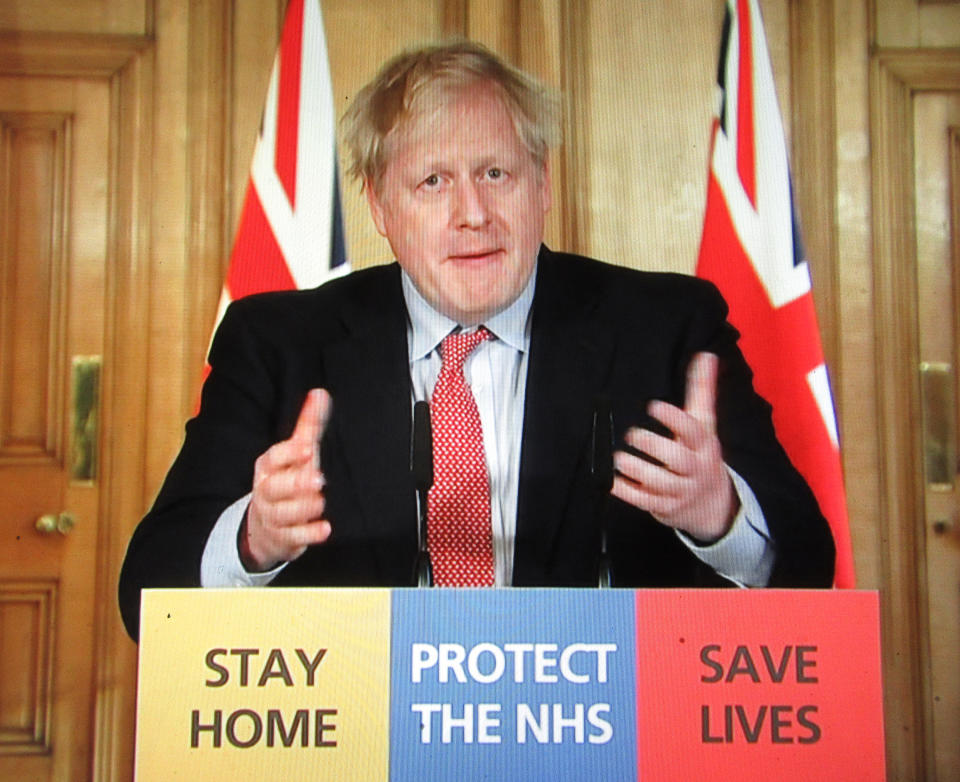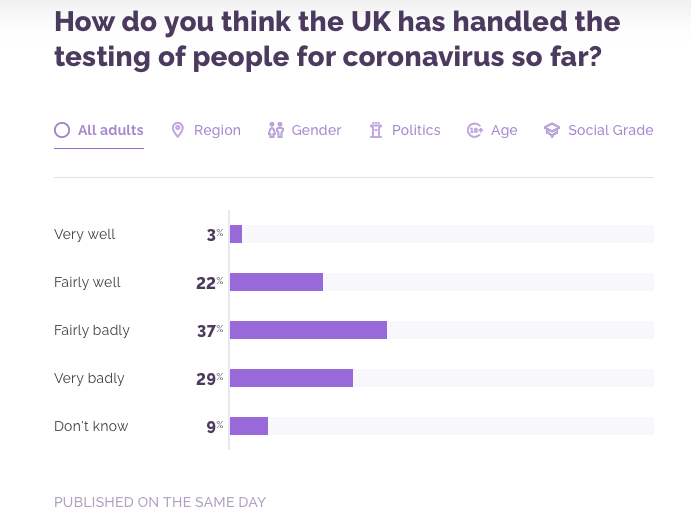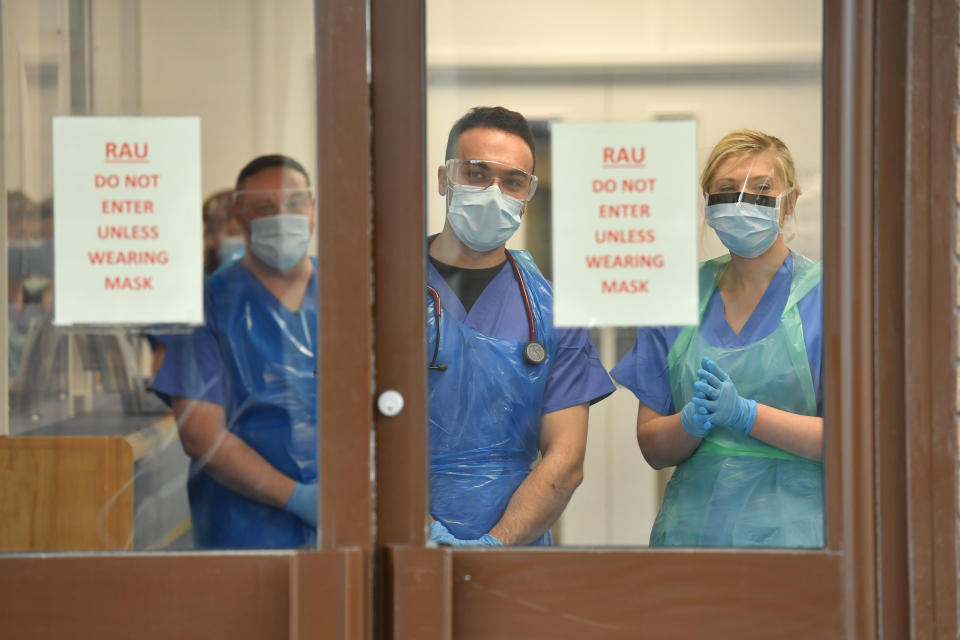Coronavirus: Two thirds of Brits think the government has badly handled COVID-19 testing

As the government continues to face criticism over coronavirus testing, most Brits feel the issue has been handled badly.
According to a YouGov poll, two thirds of the 2,625 surveyed said the UK has handled coronavirus testing either fairly badly (37%) or very badly (29%).
This compares with a quarter of Brits who say the government has handled the issue either fairly well (22%) or very well (3%).
The survey comes as pressure mounts on the government to get a grip on testing whether someone has, or has had, coronavirus.
Temporary testing facilities – including one at Ikea in London – have been set up but many NHS staff say they were turned away for not having appointments.

Three weeks ago the government announced it would stop the mass-testing of people with COVID-19 symptoms.
Currently people with mild symptoms of the illness are not being tested and there are no attempts to trace who those people may have come into contact with before testing positive.
Latest coronavirus news, updates and advice
Live: Follow all the latest updates from the UK and around the world
Fact-checker: The number of COVID-19 cases in your local area
6 charts and maps that explain how COVID-19 is spreading
NHS staff working on the coronavirus frontline have been faced with shortages of personal protective equipment (PPE), prompting fears that some may be infected without realising.
Some staff have taken to self-isolating out of precaution due to a lack of testing – including at Great Ormond Street Hospital in London, where 73 members of staff are said to have tested positive for coronavirus.
World Health Organization (WHO) director general Tedros Adhanom Ghebreyesus recently highlighted the importance of testing when it comes to dealing with the pandemic.
He said: “We have a simple message to all countries – test, test, test…
“All countries should be able to test all suspected cases, they cannot fight this pandemic blindfolded.”
With criticism mounting in recent days, Boris Johnson, who is currently self-isolating after testing positive for coronavirus, has insisted testing is "the way" through the crisis.

The number of daily tests fell on Tuesday to 8,240, according to government figures.
Downing Street said 2,000 frontline NHS workers have been tested as it reiterated calls for trusts to use any spare testing capacity for staff.
But some NHS trusts say they are limited in the number of tests they can carry out due to a continued shortages of swabs, reagents and testing kits.
The prime minister has seemingly u-turned over mass testing after her posted a video message on Twitter where he vowed to “ramp up” testing for NHS workers so they could come out of self-isolation and return to work.
He stressed the importance of testing by saying it is how "we will unlock the coronavirus puzzle”.
It came as Professor Paul Cosford, emeritus medical director of Public Health England (PHE), admitted "everybody involved is frustrated" by the low number of tests being carried out.
He pointed to ongoing capacity issues and said the "core priority" until now has been testing hospital patients with suspected COVID-19.
Here's an update to bring you up to speed on some of the things that we are doing to protect our NHS.
We will beat coronavirus together by staying at home, protecting our NHS and saving lives. #StayHomeSaveLives pic.twitter.com/FOYfvzlQPC— Boris Johnson #StayHomeSaveLives (@BorisJohnson) April 1, 2020
Prof Cosford told BBC Breakfast there is current capacity to do 13,000 tests which "more than meets the need for people who have illness" in hospital.
He said the emphasis is to test NHS staff so those who are isolating but not sick can return to work.
More than 2,000 medics have been tested out of more than 550,000 frontline NHS workers in England.
Prof Cosford said five drive-through NHS staff testing hubs are up and running, with "another four to come on stream this week”.
Testing will hit 15,000 per day "imminently", he said, adding: "It will be 25,000 by the middle of April.”
He said one hospital had managed to get 100 workers back to work after testing staff.
More help has been offered to the government by a renowned research centre which has been turned into a coronavirus testing facility for NHS staff.
The Francis Crick Institute's research laboratory has been repurposed so it can carry out COVID-19 tests at a rate of 500 a day by next week - rising to 2,000 a day in future.
It is hoped the testing will give NHS staff the information they need to know whether they can safely return to work.
Coronavirus: what happened today
Click here to sign up to the latest news, advice and information with our daily Catch-up newsletter

 Yahoo News
Yahoo News 

